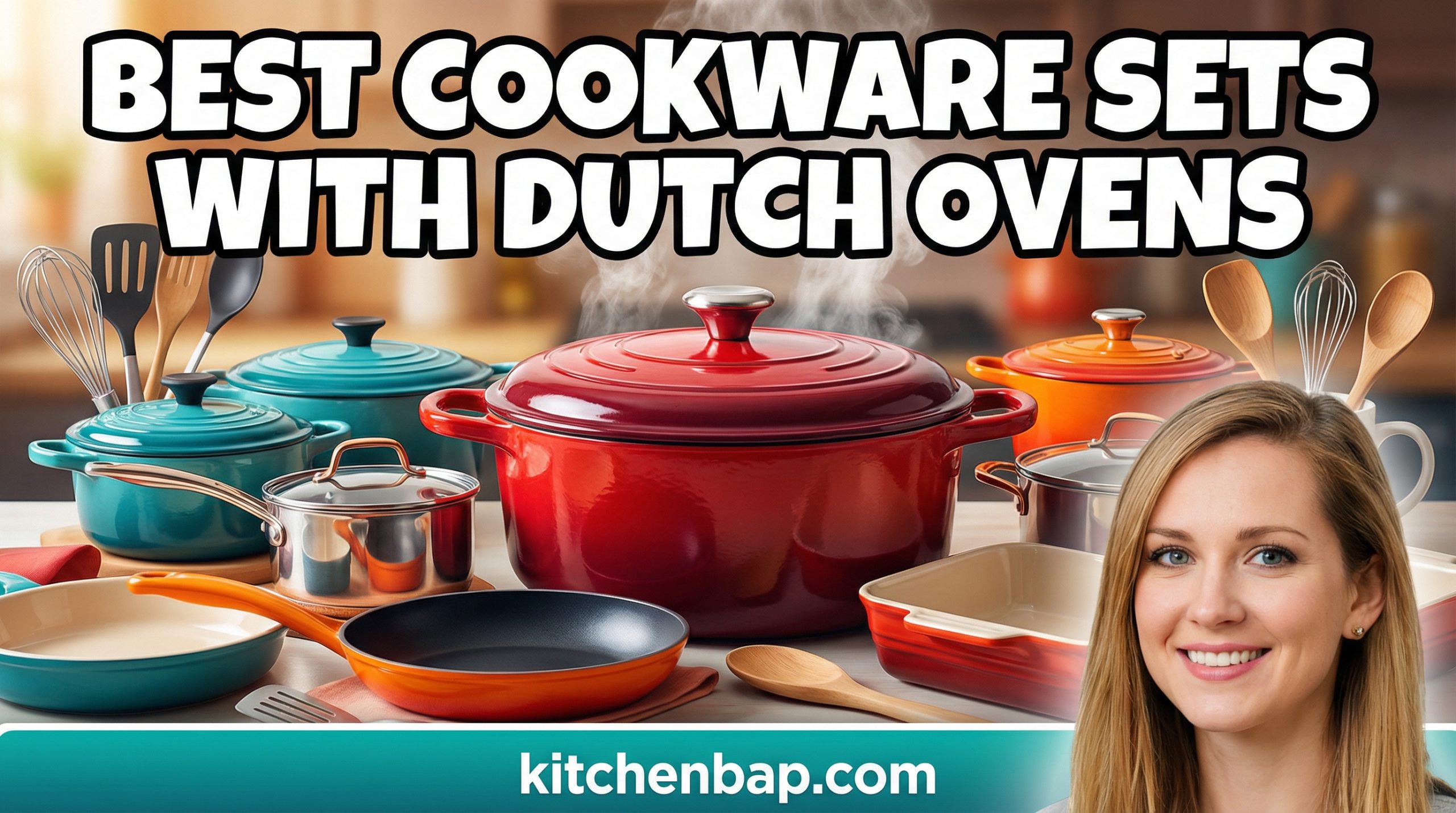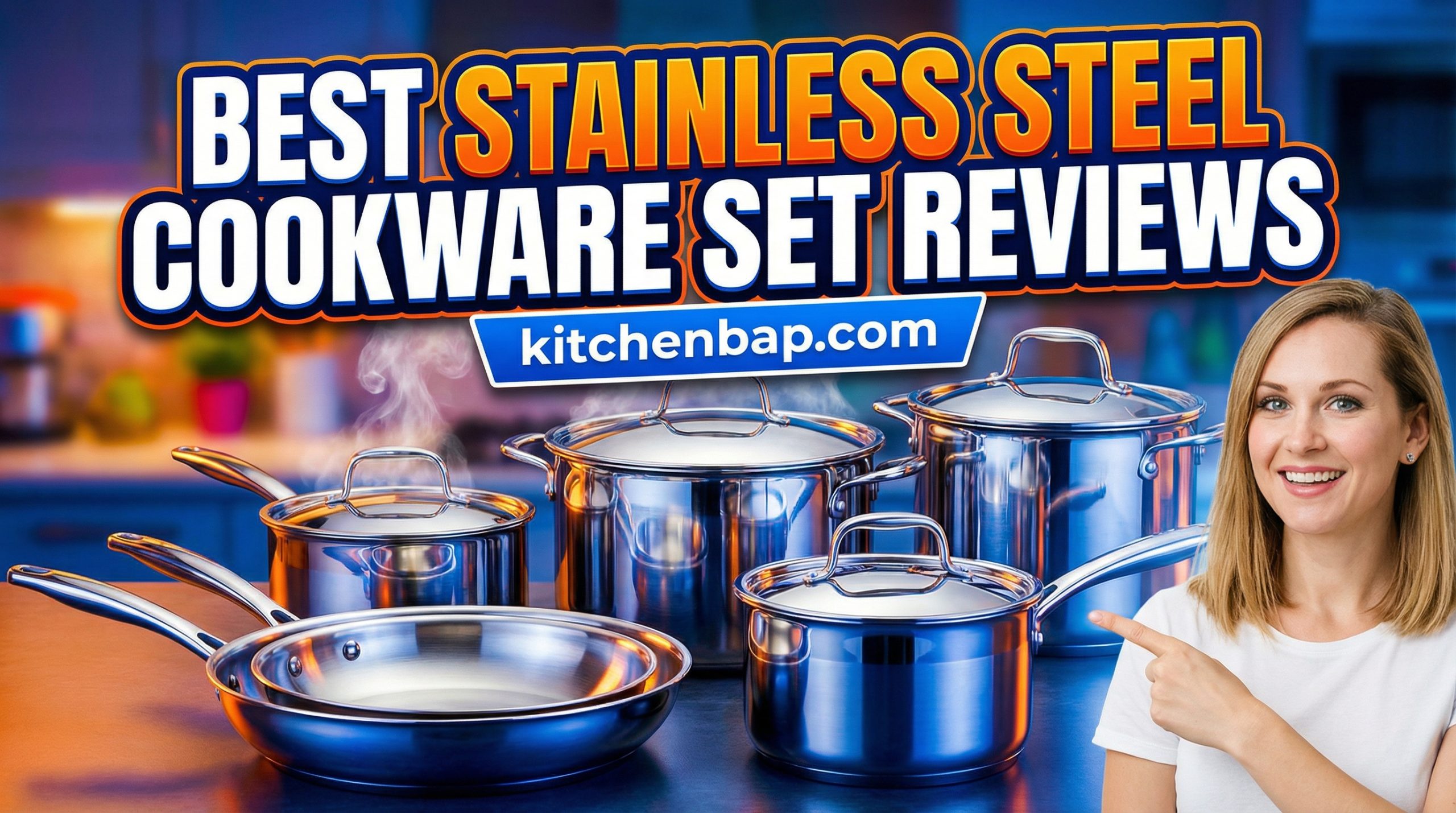Choose the right specialty cookware by identifying your cooking needs and matching them with the appropriate tools. Consider material, size, and functionality.
How to Choose the Right Specialty Cookware for Your Needs:Selecting the best specialty cookware can elevate your culinary experience. With so many options available, it’s crucial to understand what each type offers. Different materials, like cast iron, stainless steel, and non-stick, each have unique benefits. For example, cast iron is excellent for even heating, while non-stick is ideal for easy cleanup.
Consider the dishes you frequently prepare and the cooking techniques you use. Investing in high-quality cookware tailored to your needs ensures better results and enhances your kitchen efficiency. By making informed choices, you can create delicious meals with ease and confidence.

Credit: www.expressvets.com
Introduction To Specialty Cookware
Specialty cookware can elevate your cooking experience. It helps you create specific dishes perfectly. Selecting the right specialty cookware is essential for any kitchen.
This guide will help you understand what to consider. You will learn about the importance of quality cookware. You will also understand your cooking style better.
Importance Of Quality Cookware
Quality cookware ensures even heat distribution. It prevents food from burning. Good cookware lasts longer and saves money in the long run.
Using the right cookware makes cooking easier. It enhances the flavor and texture of your dishes. Investing in quality pieces is always worth it.
| Benefit | Description |
|---|---|
| Durability | Quality cookware can withstand high heat and frequent use. |
| Heat Distribution | Even heat helps cook food evenly. |
| Ease of Cleaning | Non-stick surfaces make cleaning easier. |
Understanding Your Cooking Style
Knowing your cooking style helps in choosing the right cookware. Different styles need different tools. For instance, a stir-fry requires a wok.
If you love baking, you need quality bakeware. If you often cook soups, a good stockpot is essential. Understanding your style will guide your choices.
- Identify your favorite dishes.
- Think about the techniques you use.
- Match cookware to your cooking habits.
Choosing the right specialty cookware makes cooking more enjoyable. It also improves the results of your efforts.
Types Of Specialty Cookware
Choosing the right specialty cookware can be overwhelming. Different materials and uses make each type unique. Here is a guide to help you understand the benefits and uses of various specialty cookware.
Non-stick Cookware
Non-stick cookware is perfect for low-fat cooking. It prevents food from sticking, making cleaning easier. Ideal for cooking eggs, pancakes, and delicate fish.
| Pros | Cons |
|---|---|
|
|
Cast Iron Cookware
Cast iron cookware is durable and retains heat well. It is excellent for searing meats and slow-cooking stews. It can also go from stovetop to oven.
- Pros: Long-lasting, versatile, even heat distribution.
- Cons: Heavy, requires seasoning, can rust if not dried properly.
Stainless Steel Cookware
Stainless steel cookware is known for its durability. It is resistant to rust and stains. It is perfect for browning and sautéing.
- Pros: Durable, dishwasher safe, non-reactive.
- Cons: Can be expensive, poor heat conduction, food may stick.
Copper Cookware
Copper cookware offers excellent heat conductivity. It heats up quickly and evenly. It is often used by professional chefs.
| Pros | Cons |
|---|---|
|
|
Factors To Consider
Choosing the right specialty cookware can be overwhelming. Various factors play a crucial role in this decision. Understanding these factors helps ensure you make the best choice for your needs.
Material And Durability
The material of your cookware is vital. Common options include stainless steel, cast iron, copper, and non-stick. Each material has unique benefits:
- Stainless Steel: Resistant to rust and corrosion.
- Cast Iron: Excellent heat retention, perfect for slow cooking.
- Copper: Superior heat conductivity, ideal for precise cooking.
- Non-Stick: Easy to clean, great for low-fat cooking.
Durability is also important. Stainless steel and cast iron are known for long-lasting performance. Consider these materials if durability is a priority.
Heat Conductivity
Heat conductivity affects cooking efficiency. Materials like copper and aluminum excel in this area. They distribute heat evenly and quickly.
| Material | Heat Conductivity |
|---|---|
| Copper | Excellent |
| Aluminum | Good |
| Stainless Steel | Moderate |
| Cast Iron | Poor |
Choosing cookware with good heat conductivity can improve cooking results.
Maintenance And Care
Maintenance and care requirements vary. Some materials need more attention:
- Stainless Steel: Dishwasher safe, easy to clean.
- Cast Iron: Needs seasoning, hand wash only.
- Copper: Requires polishing, hand wash only.
- Non-Stick: Avoid metal utensils, hand wash recommended.
Consider how much time and effort you can dedicate to maintenance. This will help you choose the right cookware.
Budget Constraints
Budget constraints play a significant role. High-quality cookware can be expensive. Here are some price ranges for common materials:
- Stainless Steel: $$
- Cast Iron: $$
- Copper: $$$$
- Non-Stick: $
Determine your budget before shopping. This will narrow down your choices.
Cookware For Specific Needs
Choosing the right specialty cookware can make cooking easier and fun. Different tasks in the kitchen require specific tools. Let’s explore some specialty cookware for various needs.
Cookware For Baking
Baking requires precise tools for perfect results. Common bakeware includes:
- Baking Sheets: Ideal for cookies, biscuits, and roasting vegetables.
- Cake Pans: Available in various shapes for cakes and brownies.
- Muffin Tins: Perfect for muffins and cupcakes.
- Loaf Pans: Great for bread and meatloaf.
| Type | Use |
|---|---|
| Baking Sheets | Cookies, biscuits, roasting |
| Cake Pans | Cakes, brownies |
| Muffin Tins | Muffins, cupcakes |
| Loaf Pans | Bread, meatloaf |
Cookware For Sautéing
Sautéing needs quick, high-heat cooking. Common cookware for sautéing includes:
- Sauté Pans: Wide surface area for even cooking.
- Skillets: Great for browning and frying.
- Woks: Best for stir-frying with high heat.
| Type | Use |
|---|---|
| Sauté Pans | Even cooking, quick sautéing |
| Skillets | Browning, frying |
| Woks | Stir-frying |
Cookware For Slow Cooking
Slow cooking involves cooking over low heat for hours. Essential slow cooking tools include:
- Slow Cookers: Perfect for stews, soups, and braised dishes.
- Dutch Ovens: Heavy pots ideal for slow-cooking and baking bread.
| Type | Use |
|---|---|
| Slow Cookers | Stews, soups, braised dishes |
| Dutch Ovens | Slow-cooking, baking bread |
Cookware For Grilling
Grilling needs high heat and specific cookware. Key grilling tools include:
- Grill Pans: Indoor grilling with raised ridges for sear marks.
- Grill Grates: Outdoor grilling for meats and vegetables.
- Griddle Pans: Flat surfaces for pancakes and sandwiches.
| Type | Use |
|---|---|
| Grill Pans | Indoor grilling |
| Grill Grates | Outdoor grilling |
| Griddle Pans | Pancakes, sandwiches |
Expert Recommendations
Choosing the right specialty cookware can be confusing. Experts provide valuable guidance. Here are top brands and essential pieces you should consider.
Top Brands To Consider
Top cookware brands offer excellent quality. They are trusted by chefs worldwide.
- Le Creuset: Known for its enameled cast iron cookware. Durable and versatile.
- All-Clad: Famous for stainless steel. Provides even heating and long-lasting performance.
- Calphalon: Offers nonstick and stainless steel options. Great for everyday cooking.
- Cuisinart: Budget-friendly. Good quality and variety.
Essential Pieces For Every Kitchen
Every kitchen needs certain cookware pieces. These pieces make cooking easier and more efficient.
| Cookware | Uses |
|---|---|
| Skillet | Perfect for frying, searing, and sautéing. |
| Saucepan | Ideal for sauces, soups, and boiling. |
| Stockpot | Great for large batches, stews, and pasta. |
| Baking Sheet | Best for baking cookies, roasting vegetables. |
| Dutch Oven | Perfect for braising, slow cooking, and baking bread. |
Invest in these essential pieces. They will cover most of your cooking needs.

Credit: www.amazon.com
Care And Maintenance Tips
Choosing the right specialty cookware is an investment. Proper care and maintenance will ensure it lasts long. Below are some essential tips to help you keep your cookware in top shape.
Cleaning Techniques
Cleaning your cookware correctly is crucial. Here are some tips:
- Non-stick pans: Use a soft sponge and mild detergent. Avoid metal scrubbers.
- Cast iron: Clean with warm water and a stiff brush. Dry immediately.
- Stainless steel: Use a soft cloth and a paste of baking soda and water.
For stubborn stains, soak the cookware in warm soapy water. Scrub gently to avoid scratches.
Storage Solutions
Proper storage of your cookware can prevent damage. Follow these tips:
- Stack pots and pans with soft separators to avoid scratches.
- Hang pots on a rack to save space and prevent dents.
- Store lids separately in a designated lid organizer.
Space-saving tips are useful for smaller kitchens. Consider a wall-mounted rack.
Extending The Lifespan
To extend the lifespan of your cookware, follow these guidelines:
- Avoid using metal utensils on non-stick surfaces.
- Preheat pans slowly to prevent warping.
- Season cast iron regularly to maintain its non-stick properties.
Routine care and proper usage can greatly extend the life of your specialty cookware.
Where To Buy Specialty Cookware
Choosing the right specialty cookware can be fun. Finding the perfect place to buy it can be just as important. Different buying options offer unique advantages. Let’s explore the best places to buy your specialty cookware.
Online Retailers
Buying specialty cookware online is very convenient. Amazon and eBay offer a wide range of options. You can read reviews from other customers. This helps you make a better choice. Many online stores offer free shipping. This can save you money. Here is a quick list of popular online retailers:
- Amazon
- eBay
- Wayfair
- Sur La Table
Brick-and-mortar Stores
Brick-and-mortar stores let you see and touch the cookware. This helps you decide if it feels right. Stores like Bed Bath & Beyond and Williams Sonoma have many options. You can also get advice from store staff. Here are some popular brick-and-mortar stores:
- Bed Bath & Beyond
- Williams Sonoma
- Target
- Macy’s
Second-hand Options
Buying second-hand can save you money. You can find unique, vintage cookware. Check local thrift stores or online marketplaces like Craigslist. Here are some places to find second-hand cookware:
- Goodwill
- Craigslist
- Facebook Marketplace
- Local thrift stores
These options offer great value and unique finds. Remember to check the condition before buying.
:max_bytes(150000):strip_icc()/cookware-set-group-shot-nick-kova-00015-37c3f2f73ad84f11a4c6d8c0118786e2.jpg)
Credit: www.thespruceeats.com
Frequently Asked Questions
What Is Specialty Cookware?
Specialty cookware refers to pots, pans, and kitchen tools designed for specific cooking tasks. These items enhance cooking techniques and improve results.
How To Choose The Right Specialty Cookware?
Consider the type of cooking you do most often. Evaluate material, durability, and compatibility with your stovetop. Research brands and read reviews.
Why Invest In Specialty Cookware?
Investing in specialty cookware can improve your cooking results. It provides better heat distribution and specific functionality for various dishes.
Which Material Is Best For Specialty Cookware?
Materials like stainless steel, cast iron, and copper are popular. Each material offers unique benefits, such as durability, heat conduction, and ease of use.
Conclusion
Choosing the right specialty cookware enhances your cooking experience. Consider your needs and cooking habits. Quality and material are essential factors. Research and read reviews before making a purchase. Proper cookware can elevate your culinary skills. Enjoy experimenting with new recipes and techniques.
Happy cooking!





Leave a Reply